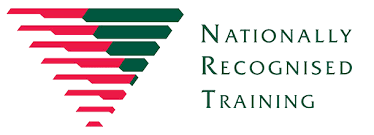Expertise
Our instructors are seasoned professionals with years of experience in the field and understand the environment.

Risk Management Training is an essential course designed to empower individuals with the skills and knowledge required to contribute effectively to work health and safety (WHS) risk management processes within their workplace. This Risk Management training delves into the core aspects of identifying WHS hazards, assessing the risks associated with those hazards, and implementing appropriate control measures to mitigate them. It aims to equip participants with the ability to create a safer work environment, reducing the likelihood of accidents and ensuring compliance with WHS regulations and standards.
The Risk Assessment training program is structured to provide comprehensive coverage of WHS risk management principles, including the legislative framework, risk identification techniques, risk analysis and evaluation methods, and the hierarchy of risk control measures. Participants will learn through a blend of theoretical knowledge and practical exercises, designed to enhance their understanding and application of risk management strategies in real-world scenarios.
Upon completion of the Risk Management Training, participants will be well-equipped to actively contribute to the risk management processes within their organisations. They will possess the skills to identify potential hazards, assess risks accurately, and develop and implement effective risk control plans. This not only promotes a culture of safety and prevention within the workplace but also aligns with organisational goals and legal obligations concerning workplace health and safety. Whether you are a WHS officer, a member of a safety committee, or a frontline worker, this training will provide you with the crucial skills and knowledge to support and enhance WHS risk management efforts in your organisation.
Students who are deemed competent will receive a Qualification, which is recognised under the Australian Qualifications Framework. This training is nationally recognised:

The RTO responsible under the National Vocational Education and Training Regulator Act 2011 for the quality of the training and assessment being delivered in this course and for the issuance of all AQF certificates is:
Intrinsic Safety trading as Rescue Group Training
RTO No. 45803
Our detailed course outline ensures a thorough grasp of:
We provide a well-rounded assessment process that encompasses both practical tasks and scenarios, as well as written theory assessments, throughout the training. This comprehensive approach ensures a thorough evaluation of your skills and knowledge, allowing you to demonstrate your competency in real-world application and theoretical understanding.
Specific assessment tasks to be undertaken include:
Course Duration & Modes
Each format is tailored to different learning styles and schedules, ensuring effective and efficient Risk Management Training.
This course can be delivered/assessed in the workplace or at a facility organised by Rescue Group Training.
Our Risk Management Training program is specifically designed to address the unique Work Health and Safety (WHS) challenges faced by various industries. Recognising that each sector comes with its inherent risks, our training is tailored to equip supervisors, team leaders, managers, and safety personnel with the essential skills and knowledge required to oversee safety protocols and foster a safe working environment effectively. Below is how our Risk Management training is customised to cater to the specific needs of key industries:
Construction:
We dive deep into the complexities of construction work, focusing on high-risk activities such as working at heights, operating heavy machinery, and handling hazardous materials. Our risk management training prepares leaders to implement robust safety measures that mitigate these risks.
Healthcare:
Our program covers the spectrum of healthcare-related risks, including patient care protocols, medical equipment handling, managing exposure to infectious diseases, and safe handling of hazardous substances. This ensures the well-being of both healthcare professionals and patients.
Manufacturing:
In the manufacturing sector, we address risks associated with machinery operation, chemical handling, and working in potentially hazardous environments. Our risk management training empowers leaders to identify, assess, and control these risks efficiently.
Mining:
Given the hazardous nature of mining, our training focuses on preventing cave-ins, explosions, and exposure to harmful substances, ensuring the safety and health of the workforce in this high-risk industry.
Agriculture:
We tackle the unique challenges of agriculture, from operating heavy machinery and handling pesticides to managing risks associated with animal husbandry, aiming to prevent accidents and health issues.
Education:
For the education sector, we provide strategies for managing on-site injuries, bullying, and preparing for emergency situations like fires, enhancing safety for students and staff alike.
Hospitality and Retail:
Our risk management training addresses the nuances of customer interactions, manual handling, and workplace violence, helping leaders create safer environments for employees and customers.
Transport and Logistics:
We focus on the risks of vehicle operation, cargo handling, and the challenges of long working hours, providing strategies to prevent accidents and ensure the safety of workers and the public.
Energy and Utilities:
Specialising in the risks associated with electrical hazards, gas leaks, and other dangerous situations, our training is crucial for those in supervisory roles to effectively mitigate these risks.
Government and Public Services:
We address the challenges of managing public safety, emergency response, and infrastructure maintenance, ensuring public service leaders are well-prepared to handle these responsibilities.
Our Risk Management Training is not just about meeting legal obligations; it’s about embedding a culture of safety, preventing accidents, and ensuring a healthy workplace across all levels of an organisation. This comprehensive approach ensures that leaders are equipped with the necessary tools to identify and mitigate potential hazards, significantly contributing to the safety and efficiency of their operations.
For comprehensive details on your rights and responsibilities, including our complaints and appeals process, kindly refer to the Pre-Enrolment Participant Handbook on our website.